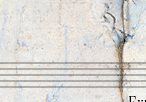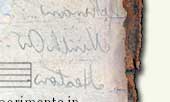












About Experiments in Musical Intelligence:
"In twenty years of working in artificial intelligence, I have run across nothing more thought-provoking than David Cope's Experiments in Musical Intelligence. What is the essence of musical style, indeed of music itself? Can great new music emerge from the extraction and recombination of patterns in earlier music? Are the deepest of human emotions triggerable by computer patterns of notes?
Despite the fact that Cope's vision of human creativity is radically different from my own, I admire enormously what he has achieved. Indeed, this lovingly written book about a deeply held vision of musical creativity should, I think, earn its place as one of the most significant adventures of the late twentieth century."--Douglas Hofstadter, author of Gšdel, Escher, Bach and Fluid Concepts and Creative Analogies
About Virtual Music:
"'Virtual Music' is not to be missed. It is engrossing, illuminating, and some would say outrageous. David Cope's computer program, Emmy, composes music that's difficult to distinguish from real music. But perhaps it is 'real' music? And perhaps Emmy is "really" creative? Several critics insist that it isn't. Douglas Hofstadter, for instance, challenges Cope in an essay in the book called "Staring Emmy Straight in the Eye -- And Doing My Best Not to Flinch." Their debate is essential reading for anyone interested in musical creativity, or in the relation between creativity and computers. You don't need to be a computer-buff, or an expert musician either, to be fascinated by it. Whether you'll be seduced or merely infuriated is for you to find out."
--Margaret A. Boden, Professor of Philosophy and Psychology, School of Cognitive and Computing Sciences, University of Sussex, Author of "The Creative Mind: Myths and Mechanisms"
"If only Beethoven or Chopin could explain their methods as clearly as David Cope. So when Cope's program writes a delightful turn of musical phrase, who is the artist: the composer being emulated, Cope's software, or David Cope himself? Cope offers keen philosophical insights into this question, one that will become increasingly compelling over time. He also provides us with brilliant and unique insights into the intricate structure of humankind's most universal artform."
--Raymond Kurzweil, inventor and author of The Age of Intelligent Machines and The Age of Spiritual Machines
Experiments in Musical Intelligence works for larger ensembles include Horizons for orchestra in the style of David Cope, two operas with librettos consisting of letters by their respective composers: Mozart and Mahler, a symphony and piano concerto in the style of Mozart, a seventh Brandenburg Concerto in the style of Bach, and many more. A video called Bach Lives...at David Cope's House describes many of the methods the Experiments in Musical Intelligence program uses to replicate new examples of music and includes live performances of works for fortepiano, flute, organ, and choir. Another video called MozartBalls presents a performance of the Rondo Capriccio (After Mozart) for cello and orchestra with cellist Steven Isserlis as soloist.
More recent work by David Cope includes the creation of two newer programs, Emily Howell and Alena. Emily Howell has her own webpage, while Alena (Artificial Life Emerging from Natural Affinities) is waiting for the publication of Cope's The Transcendent Machine for details. Emily Howell's recordings are listed here, and Alena's are listed here (poetry), on the album Breathless (Centaur Records, one work at the end of that CD), and a book of visual art called Ars Ingenero.

